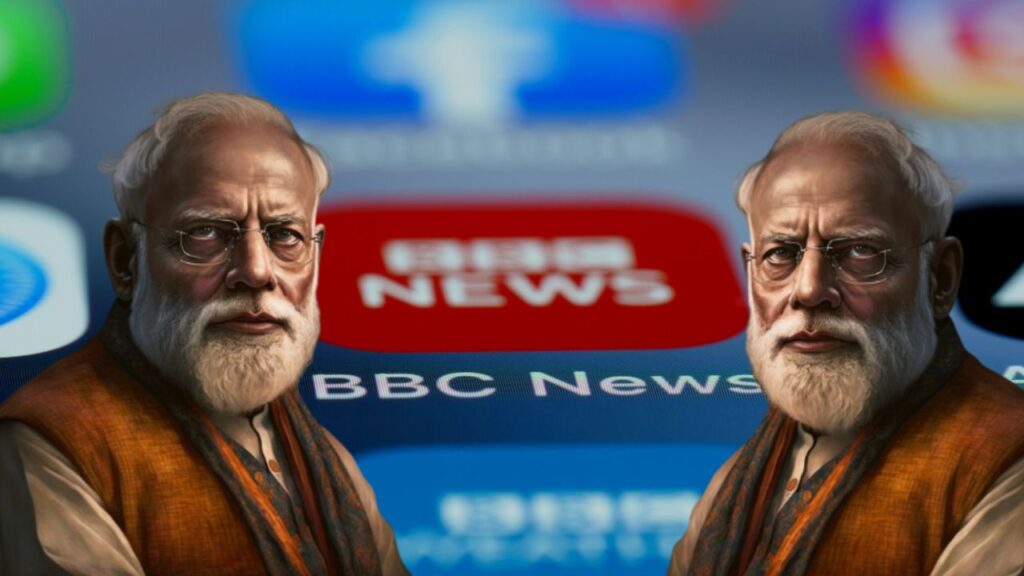
BBC documentary
On January 17, the BBC aired a longer than 11-minute coverage on the documentary in its programme “Impact” on BBC World News, just before it aired the first segment of its documentary “India: The Modi Question” on its channel BBC 2. While the BBC 2 channel is only available in Britain, the latter has a substantial following throughout the English-speaking globe and is also present in many other countries. It is obvious that the BBC wanted to expand the documentary’s audience beyond just Britain, or at the very least, to pique curiosity in as many people as possible.
“Nearly 21 years since the Gujarat riots in 2002,” the “Impact” report’s narrator said in the opening, “a new BBC documentary takes a fresh look at the impact of the events and how it has affected India’s Prime Minister Narendra Modi, who was the state’s chief minister at the time.” It is important that the BBC described the documentary as a product of the network as a whole rather than just one of its channels.
The documentary has reportedly been in the works for at least two years. Despite its claims to be independent, the BBC maintains tight ties to the establishment and supports British foreign policy viewpoints. Thus, it is evident that at least a significant portion of the British elite chose to highlight a contentious aspect of Modi’s public record.
The programme highlights a Gujarat riots report from the British Foreign Office that has been “limited.” The BBC stated in the “Impact” show that it had been “in possession” of this study for 20 years and had previously used portions of it, but only recently had it made the decision to completely utilise it. A low-level security classification for official documents is “restricted,” in general. Simply put, it indicates that its contents shouldn’t be made public because doing so could humiliate the government of the relevant nation.
Documents with confined designation typically don’t include information that might seriously jeopardise a state’s interests or threaten its security. It is not unexpected that the BBC used the Foreign Office report given the relationships the BBC has traditionally had with the British elite.
Indian authorities must therefore answer the following questions: Why did the British elite decide to produce a documentary that would criticise the Modi administration? Why did the BBC choose to publish it when the Modi administration wants to leave a unique mark through its G20 presidency? Why did the BBC wish to make the world aware of it?
The documentary is not accessible in India via social media, thanks to measures taken by the government. This is a typical bureaucratic and even political response when it is thought that the contents of a document or documentary may upset the peace. However, these decisions should only be made after a thorough analysis of the actual threats to public safety and peace.
Even if they contain objectionable material, as this documentary does in certain instances, they shouldn’t constitute normal replies to contentious documents or documentaries. The social media companies have complied with the order, but if the government’s directives are contested, it’s likely that the courts may need to become involved.
The majority government and its followers are upset with the British people who made the video because they still have colonial mindsets and won’t accept the idea that there was a larger plot behind the Gujarat riots, even though Modi has been completely cleared by the Indian legal system.
But can these outbursts of rage and highlighting the persistence of colonial ideas in Britain actually accomplish anything? In fact, it might be claimed that certain Indians’ reactions to such questions exhibit a remnant of their own ongoing colonial mentality. Would it not be preferable to exhibit utter disregard for these BBC stories and documentaries? Shouldn’t self-assured individuals who have faith in their own institutions respond that way?
No way can a documentary hurt Modi or the BJP in elections. The BBC and the British establishment would undoubtedly be aware of this truth. Therefore, it appears that harming Modi and the BJP’s reputation abroad is the goal. It might also be a warning about the assertive stance Indian diplomacy has taken in recent years on issues that the West finds troubling.
India’s diplomatic heritage called for robust stances on issues affecting its interests but relatively infrequent use of caustic language. 1971 presented India with its biggest strategic challenge in the seventy-five years since it gained independence. Its language and tone were still collected and well-balanced. Strength is demonstrated by kindness, humility, and firmness. Additionally, it has long been a part of our cultural tradition.
The G20 presidency was always going to result in more thorough examination, including of social peace-related issues. The best approach to handle this scrutiny is to show confidence in our institutions, respond calmly, and avoid becoming upset at every negative report or statement. Beginning on January 24, the BBC will air the second segment of the documentary “India: The Modi Question” on BBC 2.
Naturally, this does not imply that insults directed at India or its leaders should be forgotten or excused. However, fits of rage are ineffective.